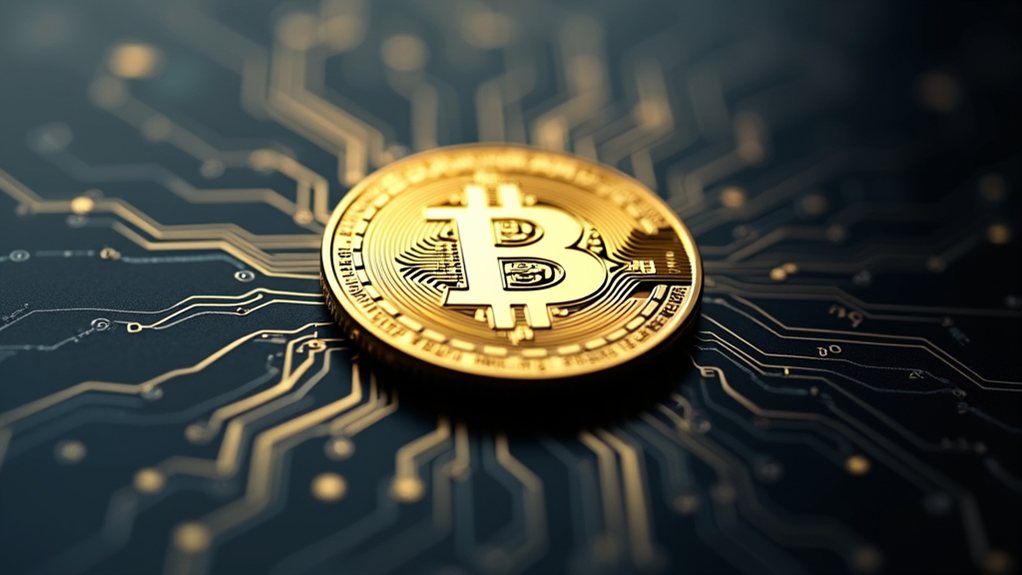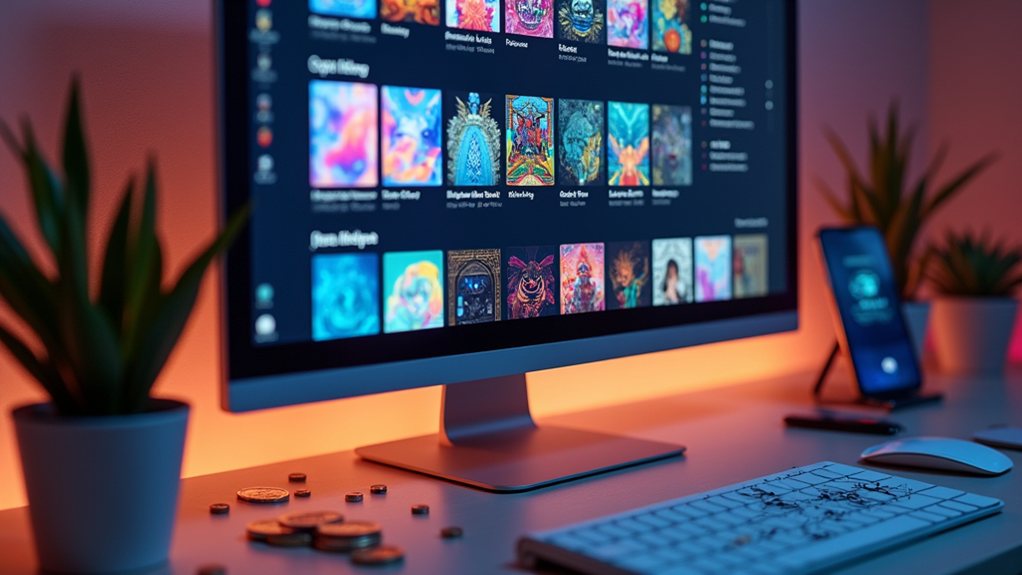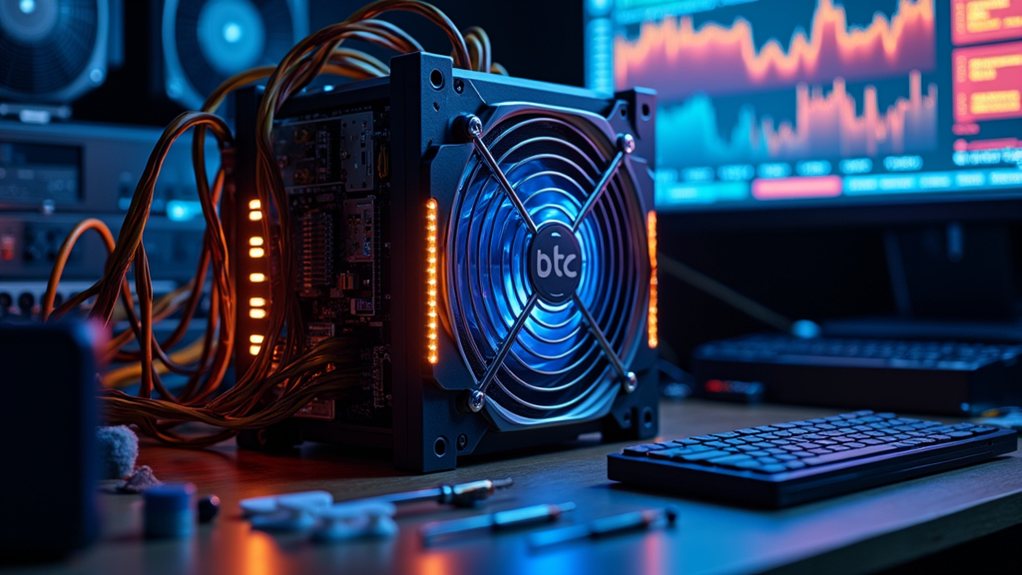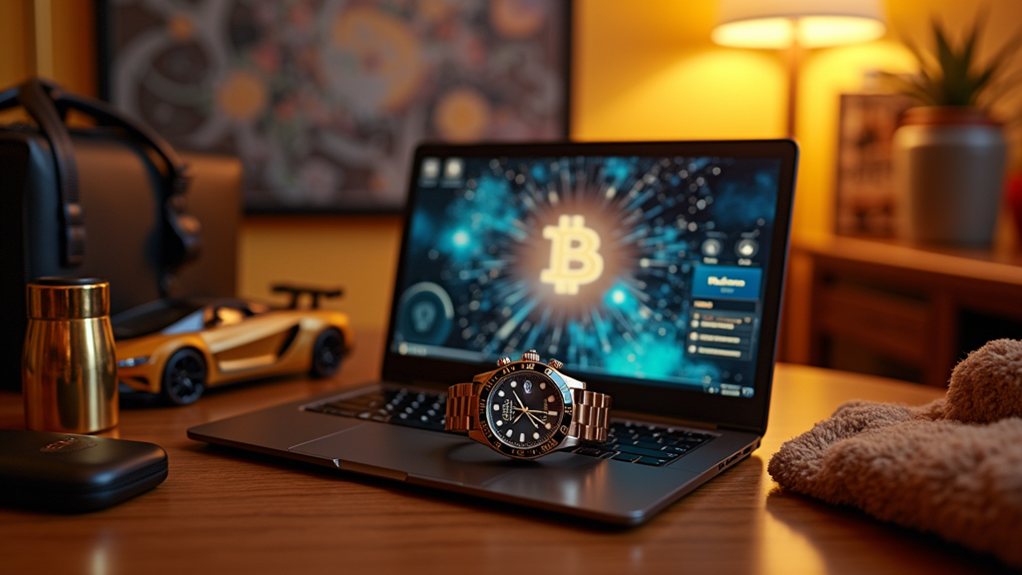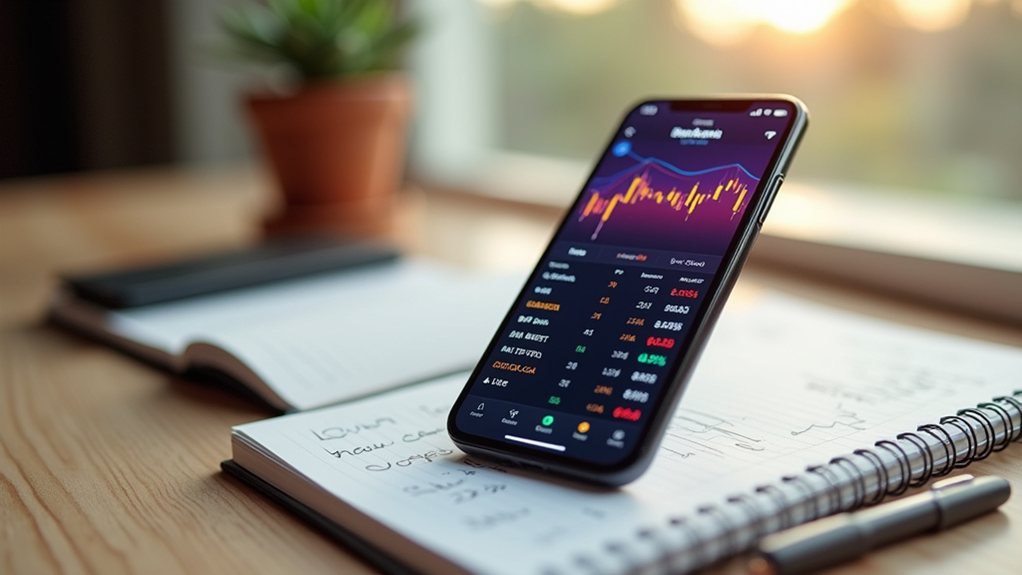Bitcoin isn't backed by gold, governments, or banks. It's backed by math and code. The cryptocurrency runs on a decentralized network where complex algorithms validate transactions and maintain scarcity. Its value? Simply what people believe it's worth. Bitcoin's 21 million coin limit creates built-in scarcity while cryptography provides security. No central authority can manipulate it. That's the point. The rabbit hole goes much deeper.
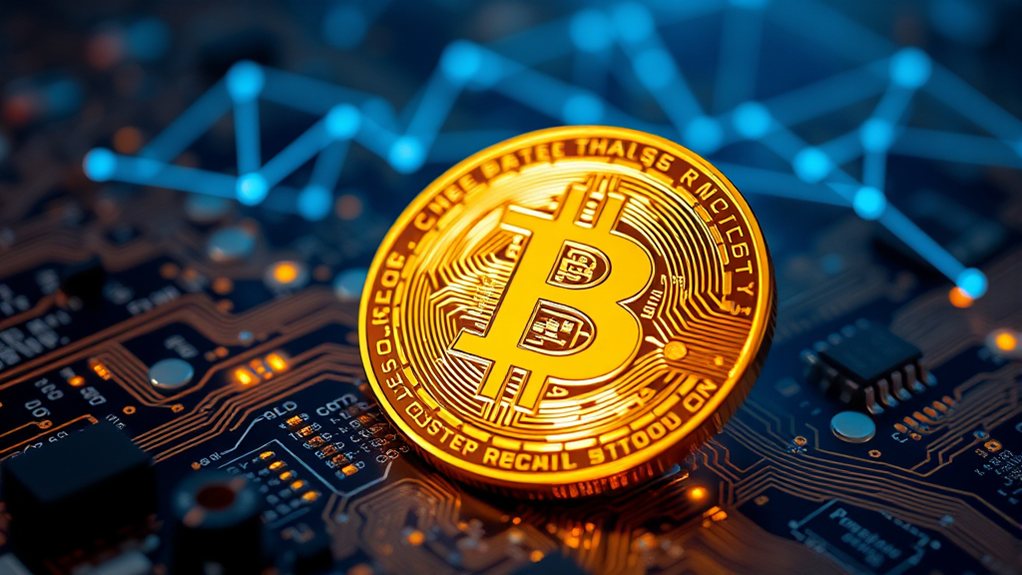
Bitcoin has revolutionized the financial world since its mysterious birth in 2009. Created by the enigmatic Satoshi Nakamoto—whoever that is—this digital currency operates without a central authority. No government. No bank. No single entity in control. That's the point. It exists as a decentralized network where users connect directly with each other, making it truly peer-to-peer.
The digital rebel that shattered financial rules—Bitcoin exists beyond authority, connecting people directly in monetary freedom.
But what exactly backs Bitcoin? Not gold. Not government promises. Nothing physical at all. Bitcoin is backed by mathematics, cryptography, and consensus. The blockchain—a distributed public ledger—records every single transaction ever made. It's transparent. Immutable. Everyone can see it, but nobody can fake it.
The system works because of miners. These individuals (or massive companies these days) use specialized computers to solve complex mathematical problems, validating transactions and adding them to the blockchain. They're rewarded with newly minted bitcoins for their troubles. It's competitive. It's energy-intensive. It's how new bitcoins enter circulation. Miners also receive transaction fees which become increasingly important as block rewards diminish over time.
There's a hard cap of 21 million bitcoins that can ever exist. Period. This scarcity is programmed into the code itself—unlike government currencies that can be printed endlessly. About 19 million bitcoins have already been mined. The remaining will trickle into existence until approximately 2140.
Each bitcoin divides into 100 million "satoshis," making even tiny fractions usable for transactions. Your bitcoins are stored in digital wallets protected by cryptographic keys. Lose your private key? Your coins are gone forever. No customer service to call. No password reset option.
The value comes from belief and utility. People believe it has value, so it does. Simple as that. But it's also useful—borderless transfers, resistance to censorship, protection against inflation. These features give it practical value beyond mere speculation. Despite being digital, some enthusiasts create physical tokens that represent Bitcoin, though these have no intrinsic value without the digital wallet they're linked to.
Institutions are taking notice. Major companies hold Bitcoin on their balance sheets. Investment firms offer Bitcoin funds. Even traditional banks are getting involved. The skeptics are becoming converts, slowly but surely.
Regulators worldwide struggle to classify and control it. Is it a currency? A commodity? An asset? The answer varies by country, creating a patchwork of regulations that sometimes conflict. Some nations embrace it. Others ban it outright.
Bitcoin isn't perfect. Transactions can be slow. Fees fluctuate. Price volatility is legendary—heart-stopping drops and exhilarating rises. Critics point to energy consumption, potential for illicit use, and technical limitations. The price history demonstrates this volatility, with Bitcoin's value climbing from virtually worthless at launch to tens of thousands of dollars per coin.
But Bitcoin persists. It's the first successful implementation of cryptocurrency, spawning thousands of imitators. None have achieved its dominance or network effect. Love it or hate it, Bitcoin has changed how we think about money itself.
Frequently Asked Questions
How Does Bitcoin Mining Impact the Environment?
Bitcoin mining devours electricity—a whopping 0.5% of global consumption.
It's an environmental nightmare. The process generates massive carbon emissions (85.89 Mt CO2 in 2020-2021), with 67% powered by fossil fuels.
Water usage? Ridiculous—equivalent to 660,000 Olympic pools.
And the e-waste? Comparable to the Netherlands' output.
Some miners use renewables (25.1%), but it's a drop in the bucket.
The planet is paying the price.
Can Governments Regulate or Shut Down Bitcoin?
Governments can regulate Bitcoin exchanges and on-ramps, but shutting down the network itself? Good luck with that.
China tried banning it entirely—miners just relocated elsewhere. Regulatory efforts face major hurdles: Bitcoin's decentralized nature, borderless transactions, and tech that evolves faster than laws can keep up.
Countries are trying different approaches. Some ban, others embrace. The cat-and-mouse game continues, with Bitcoin proving surprisingly resilient.
What Happens to Bitcoin When All 21 Million Are Mined?
When all 21 million bitcoins are mined around 2140, mining rewards vanish.
Miners will rely solely on transaction fees. No new coins means increased scarcity—potentially driving up value. The network keeps running, validated by miners chasing those fees.
Economics shift dramatically to a deflationary model. Lost bitcoins? They're gone forever, making the actual supply even lower.
The mining industry must adapt or die. Bitcoin's evolution continues, just without the fresh supply.
How Does Bitcoin's Volatility Affect Its Use as Currency?
Bitcoin's extreme volatility cripples its function as everyday currency. Merchants can't price goods when values swing thousands of dollars daily.
Try budgeting when your money might be worth half tomorrow! Some businesses accept it, sure, but immediately convert to traditional currency.
It's 4.6x more volatile than global equities—good luck planning ahead. As the IRS classifies Bitcoin as property, not currency, every transaction potentially triggers taxable events.
Not exactly convenient.
What Risks Do Bitcoin Holders Face During Market Downturns?
Bitcoin holders face a minefield during downturns.
Extreme volatility means 50%+ losses happen fast. Good luck selling when everyone's panicking—liquidity dries up and exchanges sometimes freeze withdrawals.
Security threats multiply as hackers target desperate investors. Regulators smell blood during crashes, threatening new restrictions.
Technical glitches compound stress. And that private key? Lose it in the chaos, and those coins are gone. Forever.

